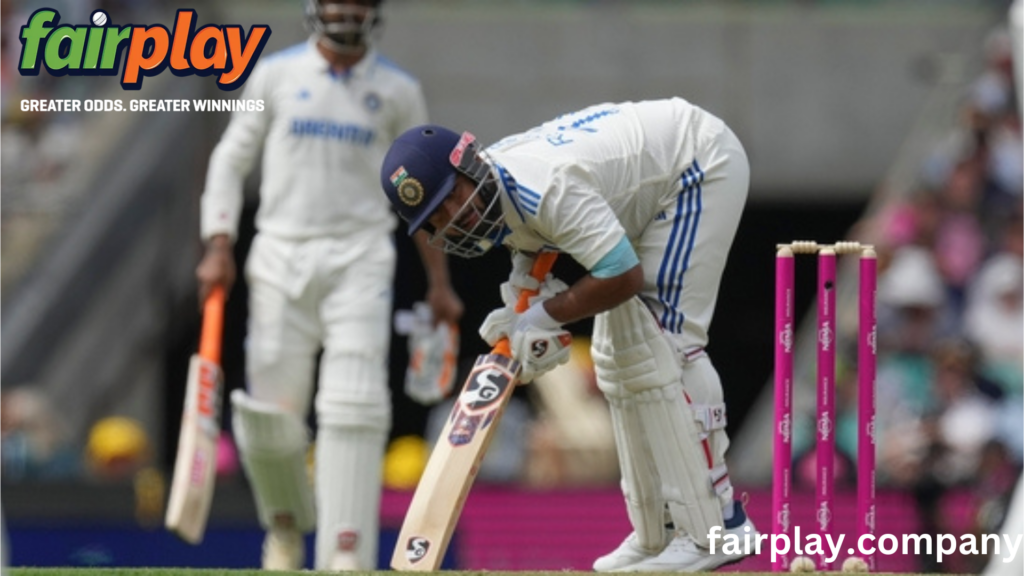
The predicted conflict between India vs Australia in the Fourth Men’s Cricket Test persisted to captivate cricket fanatics globally on Day Two in Melbourne. With the series finely poised, the second one day of play added excessive drama, high-quality performances, and strategic brilliance. Here’s an in-intensity look at the movement-packed day and what it means for the rest of the Test.
India vs Australia: The Battle Intensifies
Day Two in Melbourne showcased the depth and competitive spirit that outlined each encounter among India vs Australia. The day started with Australia resuming their innings, seeking to consolidate their position in opposition to a disciplined Indian bowling assault.
Effortless Access to Your Account with Fairplay Login
Discover the best and easiest way to manage your Fairplay account. Learn how to securely Fairplay login, access exciting features, and stay updated on the latest in online entertainment.
Australia’s Innings
Australia’s batters confronted an early setback because the Indian pacers struck with precision. Despite the challenging situations, Marnus Labuschagne and Steve Smith demonstrated their magnificence by means of anchoring the innings. Smith, in particular, showcased his trademark resilience, crafting a well-earned 1/2-century that steadied the Australian ship.
Key Partnerships: Labuschagne and Smith’s partnership introduced crucial runs, keeping India at bay for a significant part of the consultation.
Indian Bowlers Shine: Mohammed Shami and Ravindra Jadeja had been standout performers, applying relentless pressure and choosing up important wickets.
The Australian innings concluded at a decent overall, leaving the suit delicately balanced as the focus shifted to the Indian batters.
India’s Response in Melbourne
The Indian group’s reaction became not anything quick or brilliant. Facing a tough pitch at the Melbourne Cricket Ground (MCG), India’s opening pair introduced a confident beginning, setting the tone for the innings.
Middle-Order Contributions
The center-order additionally chipped in with treasured runs. Cheteshwar Pujara and Virat Kohli’s partnerships ensured that India capitalized at the beginning provided through the openers. Though Kohli fell quickly off a big score, his superb motive became glaring at some stage in his stay on the crease.
The Melbourne Crowd: A Key Player
The crowd at Melbourne added to the electrifying atmosphere of the India vs Australia Test. Known for their passion and cricketing understanding, the spectators played their component in growing a memorable day of Test cricket.
Support for Both Teams: Fans of both India and Australia turned out in large numbers, cheering every boundary, wicket, and milestone.
MCG’s Historic Significance: As one of the most iconic cricket venues, the MCG is still a level for mythical encounters within the India vs Australia contention.
Key Takeaways from Day Two
Day Two in Melbourne provided lots of talking points and set the stage for an spell binding remainder of the Test healthy:
Balance of Power: Both groups have displayed their strengths, keeping the contest calmly poised.
India’s Resilience: The Indian team’s combating spirit turned into on full show, as they matched Australia’s depth.
Bowling Brilliance: The disciplined efforts of both bowling assaults highlighted the significance of preserving stress on this challenging pitch.
Strategic Insights for India vs Australia
As the healthy progresses, the techniques employed by way of both teams might be essential in determining the outcome:
India’s Approach: India will intend to build a tremendous first-innings lead, counting on their center and decrease order to make important runs.
Australia’s Counterattack: The Australian bowlers, led with the aid of Pat Cummins and Nathan Lyon, may be looking to exploit any weaknesses within the Indian lineup.
What’s Next in the India vs Australia Test?
With 3 days of play last, the India vs Australia Test in Melbourne guarantees to supply more twists and turns. Here’s what fanatics can look forward to:
Key Battles: The duel among India’s batters and Australia’s bowlers will take middle degree.
Impact Players: All eyes may be on players like Ajinkya Rahane and Rishabh Pant to make vital contributions.
Pitch Dynamics: The pitch at Melbourne is expected to deteriorate, including to the challenges confronted by using batters on each side.
The Significance of This Test Match
This India vs Australia Test in Melbourne holds immense importance for each team. For India, a victory would solidify their role within the ICC World Test Championship standings and improve their self belief for destiny contests. For Australia, a win would enhance their dominance at domestic and fortify their standing in the worldwide cricketing arena.
Fairplay Login: Your Gateway to Seamless Gaming and More
Get started with Fairplay betting id today! Experience smooth account access, exclusive gaming opportunities, and a world of entertainment at your fingertips.
Conclusion
Day Two of the Fourth Men’s Cricket Test between India vs Australia in Melbourne became a testimony to the timeless enchantment of Test cricket. With each team turning in notable performances, the level is set for an unforgettable end to the collection. As the gamers prepare for the challenges beforehand, cricket fanatics round the sector can anticipate extra interesting motion and noteworthy moments in this epic war.

